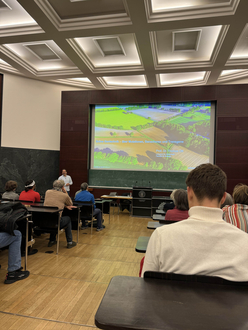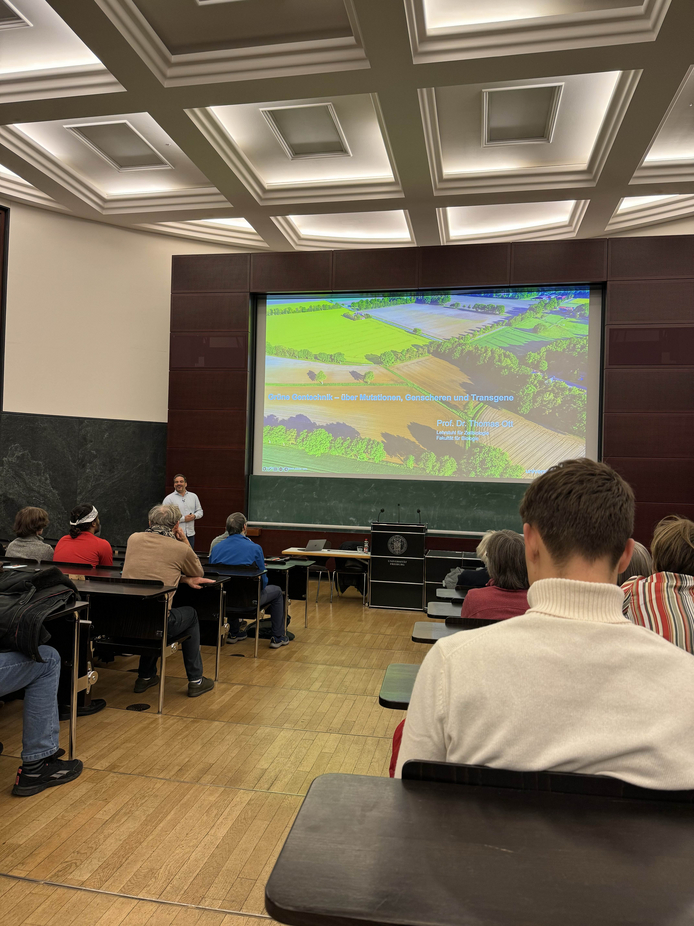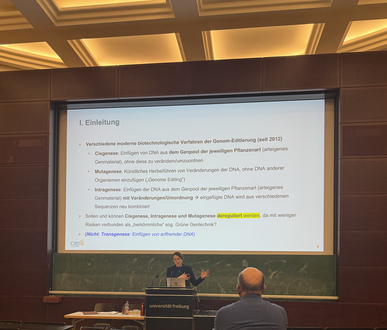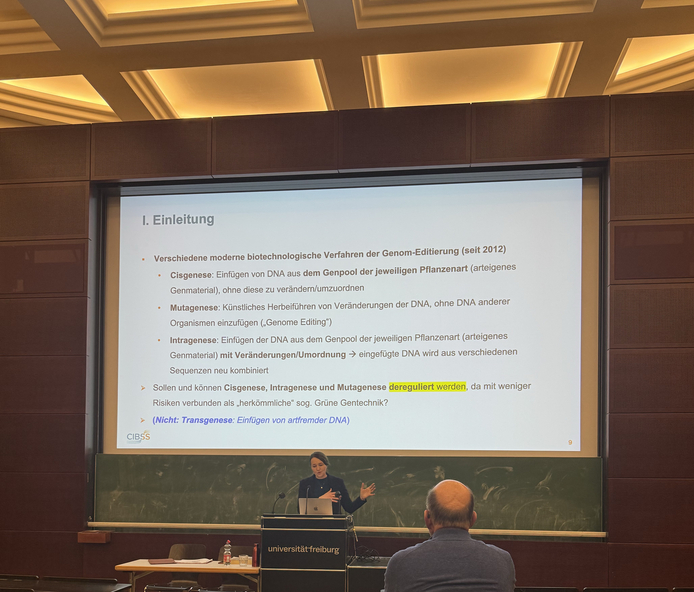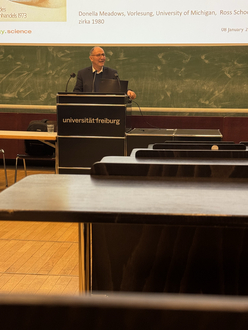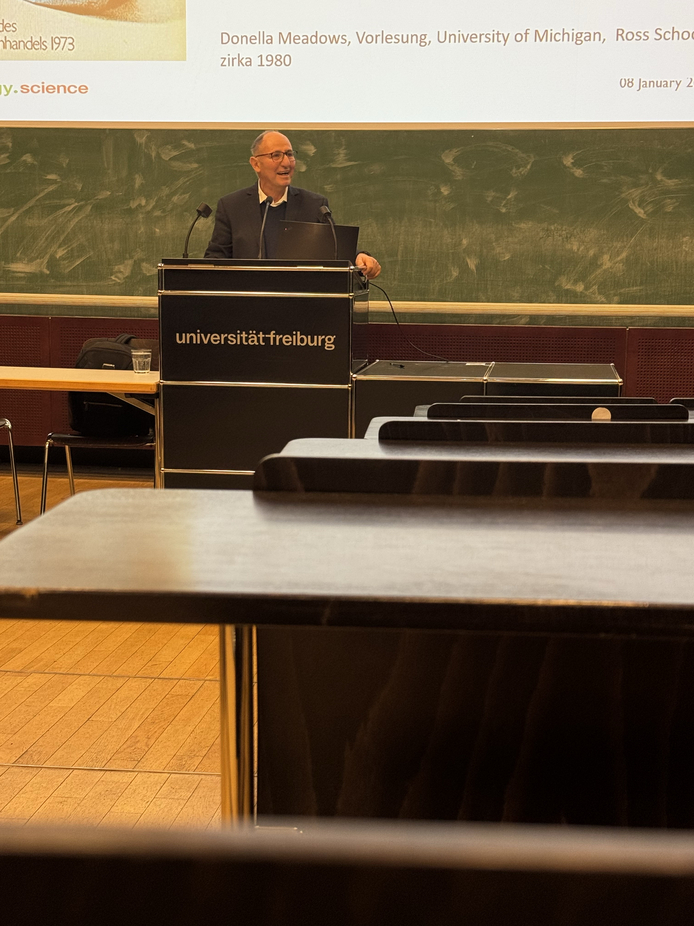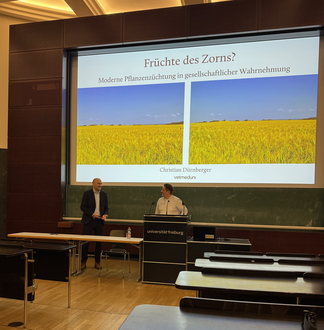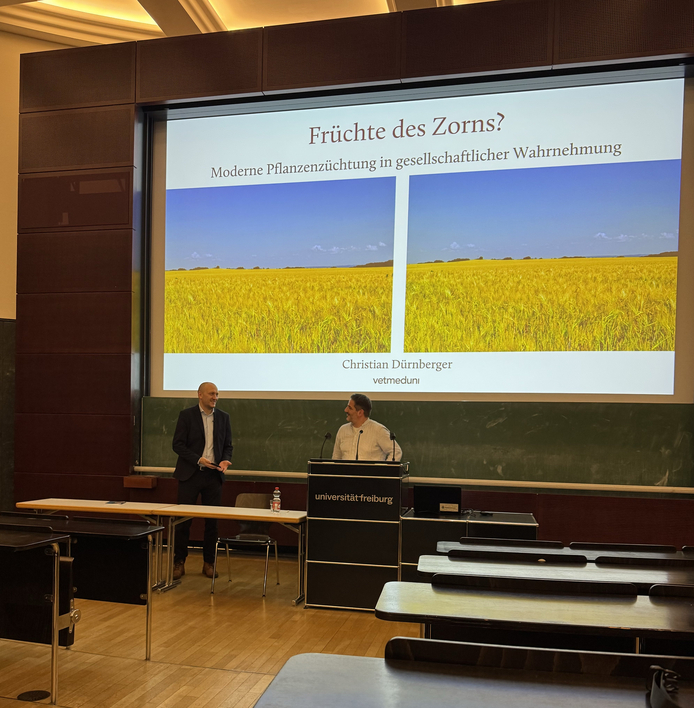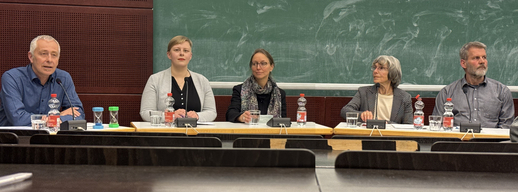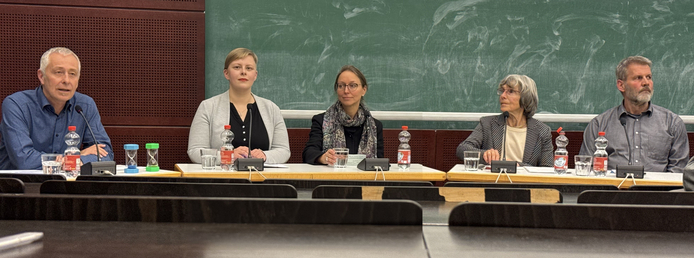Few topics in the field of technological innovation and its applications are as polarising as 'green genetic engineering'. Recently, the European Commission has been discussing the so-called 'New Genomic Techniques' (NGT) and deciding how to deal with them in the future. The debate has once again pitted many NGOs, politicians and other interest groups against each other in a controversial and seemingly uncompromising way. But why is this issue so important to us? What is the scientific and legal basis for this debate? And are organic farming and the use of modern plant breeding really mutually exclusive?
These questions were discussed in the lecture series Green Genetic Engineering – Opportunities for Sustainability? at the University of Freiburg in the winter semester 2024/25. International experts gave four keynote lectures that prepared the ground for a concluding panel discussion.
Two of the talks were picked up by Deutschlandfunk Nova and broadcast within their "Hörsaal" series






